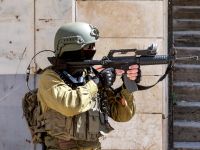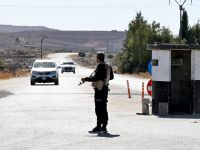The global investigation launched by the FBI to find the roots of the September 11 attacks on US cities has become, in the last six months, a race against time to unmask and neutralize sleeper cells of Osama bin Laden’s al-Qaeda network.
Federal law enforcement priorities have shifted to avoid, at all possible costs, any future attack of such enormous scale on the US, or against its interests abroad.
"The attack happened, and we have the responsibility of preventing such attacks," said FBI chief Robert Mueller, who has deployed 4,000 agents across the United States and around the world, according to AFP.
Prevention is now the focal point of federal law enforcement, as intelligence officials give no clear clues about the nature of the terrorist threat against the United States.
"We are likely to be attacked in ways we have not anticipated ... something totally unexpected," warned a former CIA coordinator of anti-terrorist activity, Vince Cannistraro.
"There is an awful lot of intelligence indicating that something might happen - there is increasing activity in North America."
Terrorists could be planning to ignite "dirty bombs," capable of widespread radioactive contamination. Or, perhaps, launching a biological or chemical attack - or destroying a major landmark.
"The hardest thing for all of us is to think that another such attack will occur and we have not done everything possible we can, overturned every stone, to try to prevent the next attack," Mueller told reporters in Washington.
US agents have discovered a real network of terror stretching across an estimated 60 countries, led by suspected terror mastermind Osama bin Laden and his supporters.
However, that knowledge has not resulted in arrests, as only a few suspected militant members of the tangled web are actually behind bars - most remain on the run.
A list of 22 of the most dangerous amongst them, with Saudi-born Osama bin Laden figuring prominently atop it, is featured on the FBI website, with information about the millions of dollars in rewards for information leading to their capture.
The US Justice Department, on its part, suggests that around 100 people of the more than 1, 200 detained so far in the United States as part of the investigation have discernible connections to the al-Qaeda network. What will happen to the rest is still unclear.
Interrogations of the more than 300 prisoners from the US-led campaign in Afghanistan who have been sent to a detention center on a US naval base in Guantanamo Bay have provided further leads, authorities say.
However, only one man, Moroccan-born French national Zacarias Moussaoui, has been indicted in conjunction with the September 11 attacks, the only one to be formally accused of being a member of al-Qaeda - though investigators still do not know whether he was to be the 20th hijacker aboard the doomed planes.
There is another one, Richard Reid, a Briton who allegedly tried to blow up a flight from Paris to Miami with explosives stashed in his shoes, who is currently in US custody. However, his links to the terror network are still cloudy.
While the FBI has opened 150 separate investigations into groups or individuals in the United States suspected of ties to al-Qaeda, abroad they are hunting terrorists in Europe and across Asia, in Pakistan, Malaysia, Singapore, Indonesia and the Philippines.
At the national level, a "National Alert System" will be put in place to establish a five-tiered alert system.
"We should operate under the notion that some terrorists are still in the United States," Homeland Security Director Tom Ridge said recently. (Albawaba.com)







